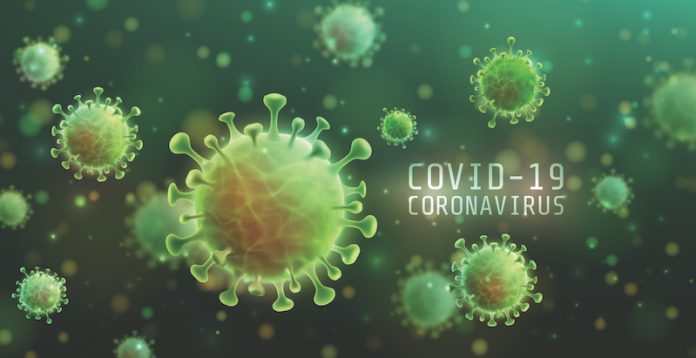By Seema Verma
Administrator, Centers for Medicare & Medicaid Services
Nursing homes have become ground zero in the coronavirus disease 2019 (COVID-19) pandemic, with outbreaks causing high rates of illness and death among vulnerable residents living together in close quarters.
That’s why the Centers for Medicare & Medicaid Services (CMS) has taken a series of aggressive actions over the last several months to protect nursing home residents against the spread of this new coronavirus.
We understand how terrifying these outbreaks are for nursing home residents and their families, and how essential it is for them to know what is going on inside nursing homes.
So, we acted accordingly. Beginning in May, CMS required nursing homes that participate in Medicare and Medicaid to inform residents, their families, and their representatives within 12 hours of when a single confirmed COVID-19 case is reported, or when three or more residents or staffers develop respiratory symptoms within 72 hours of each other.
Residents, families, and their representatives also must be given weekly updates or be told by the end of the next day each time a subsequent COVID-19 case is confirmed and/or three or more residents or staffers develop respiratory symptoms within 72 hours of each other.
Nursing homes also must include information about what actions they’re taking to prevent or reduce the risk of transmission, and inform residents and their families about how those actions will change normal operations in the nursing home.
But we didn’t stop there. We also developed a system so the public could quickly and easily access data reported to the Centers for Disease Control and Prevention on the prevalence of COVID-19 at every CMS-certified nursing home in the country. This information is now publicly available in a searchable database that allows people to look up individual nursing homes and see how many COVID-19 cases and deaths, among both residents and staffers, have been reported there. This new system of national reporting for nursing homes is unprecedented.
The data can be found at our Nursing Home Compare website. (See the “Spotlight” section for the link.) CMS will update the data weekly and take enforcement action against nursing homes that do not report the required information. About 15,400 nursing homes nationwide are certified to accept people enrolled in Medicare or Medicaid.
The Nursing Home Compare website features a Five-Star Quality Rating System to rate nursing homes, with one star indicating the lowest overall quality of care and five stars indicating the highest. Early analysis of reported COVID-19 data shows that facilities with a one-star health inspection rating were more likely to have larger numbers of COVID-19 cases than facilities with a five-star health inspection rating.
In March, CMS and the states suspended standard inspections of nursing homes and began looking specifically for violations of infection control and prevention rules. We also provided a focused infection-control survey tool for nursing homes to do self-assessments to ensure they were taking necessary steps to protect their residents against COVID-19.
CMS is providing additional support and technical assistance to low-performing nursing homes through its Quality Improvement Organizations. QIOs are composed of health quality experts and clinicians with experience in helping healthcare providers to improve the quality of care for people with Medicare. CMS directed QIOs to focus their efforts on providing education and training to all nursing homes in the country.
Finally, CMS recently provided state and local officials with recommendations on phased re-openings of nursing homes in their areas, including when and under what circumstances to allow visitors.
Visits from family and friends are generally restricted at nursing homes now to help control and prevent the spread of the virus, except in compassionate care situations. We understand how hard it is to be separated from loved ones, especially elders, for so long.
But as nursing homes meet certain criteria, they may be in a position to allow visitors again. Our guidelines recommend that visitation be allowed in Phase 3 with screening and additional precautions, including social distancing and hand hygiene (e.g., use of alcohol-based hand rub upon entry). We also recommend that all visitors wear a cloth face covering or facemask for the duration of their visit.
You can read more about the reopening guidelines here:
https://www.cms.gov/files/document/qso-20-30-nh.pdf-0
Be assured that CMS will use every tool at its disposal to protect the health and safety of America’s nursing home residents.













